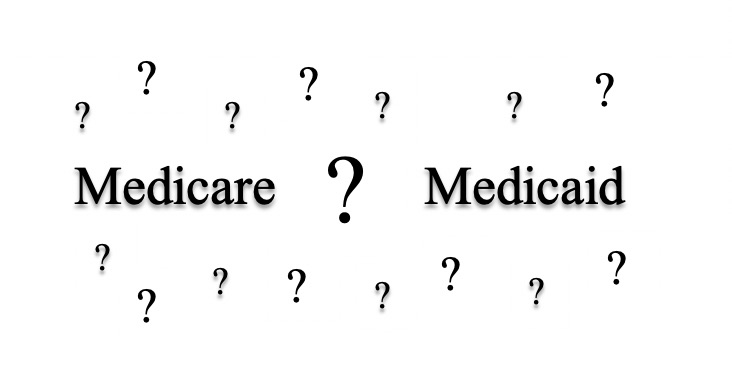Over 85 million people in the United States live with a disability and make up…

Medicare vs Medicaid: The Basics
Medicare and Medicaid have often been a mystery to many. What is Medicare? What is Medicaid? What is the difference? Won’t Medicare take care of my long-term care expenses? The answers to these questions are extremely important for seniors and families. Below is a basic introduction to these benefits to act as a starting point for you and your family to begin to understand these crucial resources to support our Seniors and loved ones with disabilities.
Medicare
Medicare is a health insurance program provided through the federal government. In order to receive Medicare, a person must be 65 years old or older, or have a severe disability. Because the federal government runs and administers Medicare, it is uniform from state to state. If a person meets Medicare eligibility requirements, they can receive Medicare no matter their income or assets. Costs for Medicare are based on the recipient’s work history. This means that costs are determined by the amount of time a person paid Medicare taxes. Due to the lack of a financial needs requirement for eligibility, you or members of your immediate family may already be benefitting from the Medicare program.
Medicare can be confusing because there are four parts. You may have seen commercials talk about Parts A, B, C, D, but not known the difference. Parts A, B, and D can be somewhat simplified. Part A is hospital insurance, Part B is medical insurance, and Part D is prescription drug coverage. Parts A and B are covered in Original Medicare offered by the government. Part C is often called the Medicare Advantage Plan. The Part C plans are an alternative way to get Medicare coverage through private insurance companies, instead of the federal government. The Medicare Advantage Plan or Medicare Part C plan are required to include the same coverage as Original Medicare but usually also include Part D as well. However, even though Part C plans are through private insurance, they are not necessarily the best option for you. Review the benefits of Part A and B and C plans so that you can make the best choice as a healthcare consumer.
Medicaid
Medicaid is a health care assistance program and its eligibility is based on a person’s income and assets and is available to people who belong to one of the eligible groups: children, people with disabilities, people over age 65, pregnant women, and the parents of eligible children. Its guidelines come from the federal government, but it is administered by each state.
Unlike Medicare, Medicaid is available to provide long term nursing home care for Seniors. Financially eligible Seniors who qualify for Medicaid and only pay a share of their income for the nursing home. Medicaid then pays the rest making it a resource in Long Term Care Planning.
As Medicaid is also available to persons with disabilities, it is important to understand this benefit if you have a family member with a disability. Special Needs Planning can improve a disabled person’s quality of life while still utilizing the support of Medicaid with its income and asset limitations.
Dual Eligibility
A person can be eligible for both Medicare and Medicaid and can have both. The two programs work together to help the recipient best cover the expenses of health care. For example, Medicare costs include premiums, copays, and deductibles. Full Medicaid benefits can cover the costs of Medicare deductibles and cover the 20% of costs not covered by Medicare. Medicaid can also help with Medicare assistance and may cover costs of premiums for Part A and/or Part B.
Although Medicaid and Medicare can be quite confusing, it is important at a minimum to know the basics. When you or someone you love is eligible or in need of the benefits, there are organizations willing to help and your local elder law attorney is also a valuable resource.
The content of this blog is for informational and educational purposes only and is not guaranteed to be correct, complete, current or representative of your geographic area. The above is not intended to be a solicitation for service or legal advice and Rouse and Rouse, PLLC makes no warranty, expressed or implied, about the accuracy or reliability of the information in this blog, this website or in any linked website. A viewer of this content should not act or refrain from acting without seeking appropriate legal advice on the particular facts and circumstances at issue from an attorney licensed in the viewer’s state.

